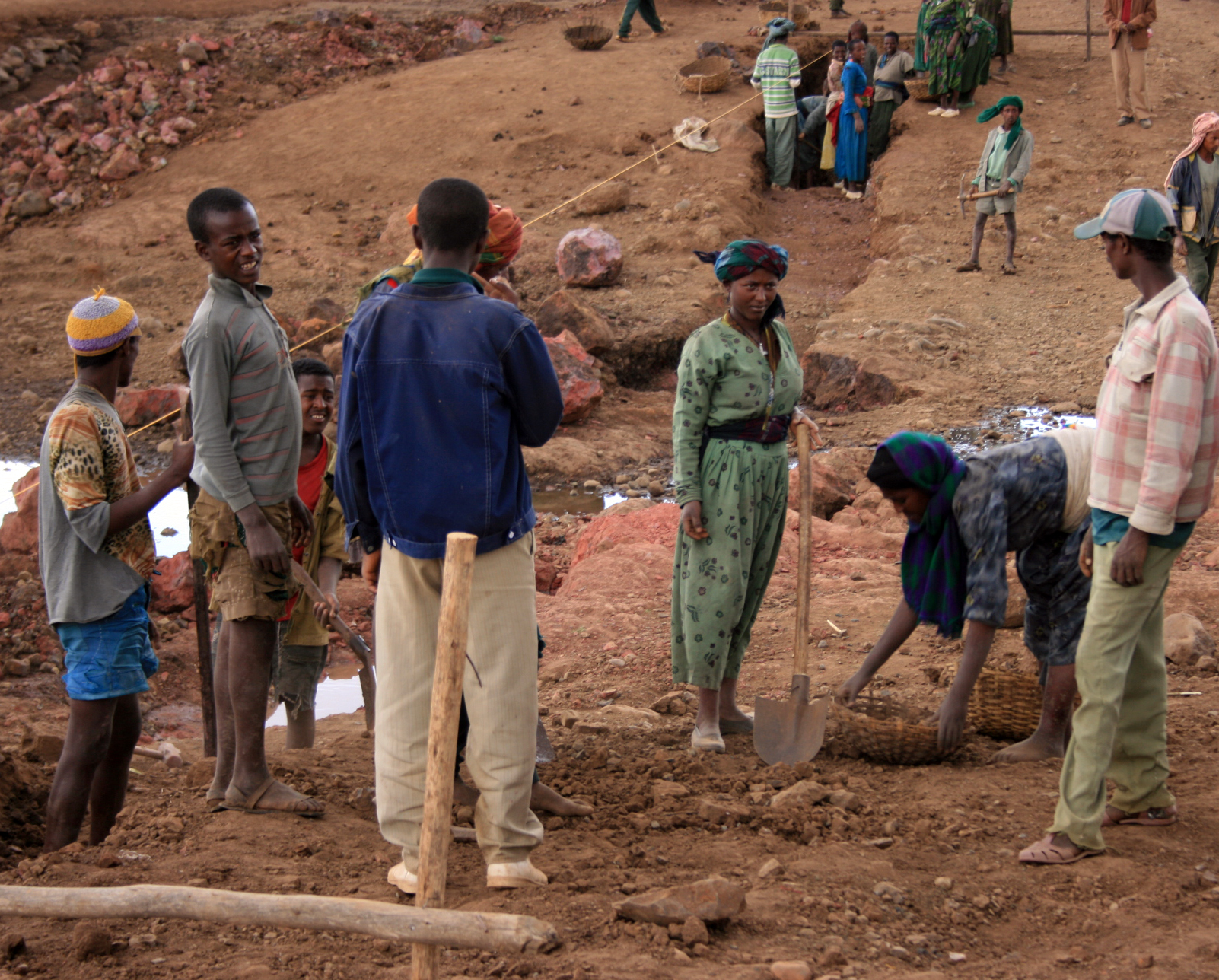University receives award to improve rural roads in Ethiopia

Virginia Tech researchers will be training Ethiopians to improve the construction and sustainability of rural roads in their country, thanks to a grant from the U.S. Agency for International Development.
The one-year, $159,000 grant was awarded to an agricultural and natural resource management program managed by Virginia Tech.
Many roads in Ethiopia are poorly designed and constructed, which leads to premature road failure, high maintenance costs, and serious environmental problems. The roads concentrate the flow of water, which increases erosion and causes sediment to build up on nearby fields, damaging crop growth. A better road design could lessen erosion and more efficiently disperse water to ponds for agricultural use during Ethiopia’s dry season.
“Most of the rural roads in food-insecure regions are in terrible condition, and some even disappear during the rainy season,” said Michael Bertelsen, associate director of the Office of International Research, Education, and Development and campus coordinator for the project.
In April 2009, Bertelsen traveled with Theo Dillaha, professor of biological systems engineering in Virginia Tech's College of Agriculture and Life Sciences, to Ethiopia to assess the training needs and design a training program to improve poor rural road construction issues. They found that adequate labor and land resources are available, and local communities are motivated to build and maintain new roads. However, development agents responsible for planning and supervising construction did not have basic road construction training or skills.
The project is a part of the Ethiopian government’s public works segment of their food security program. The Virginia Tech team has adopted a “training of trainers” strategy in which the team will train road engineers, who will in turn train rural road desk officers. The desk officers will then provide training and oversight for development agents and contractors at the local level.
A two-week pilot training workshop is planned in Ethiopia this May, and the Virginia Tech team will develop training methods and materials. The participants – regional road authorities and desk officers – will learn to integrate community-based watershed planning and other environmental issues into road construction. The workshop training will be supervised by Dillaha, and assisted by Khaled Hassouna, a project associate of Virginia Tech’s Conservation Management Institute.
“Ethiopia is a country where hunger and food security are continuing problems. Virginia Tech is committed to building upon its past experience in Ethiopia to contribute to the U.S. government's Feed the Future initiative in Africa,” said S.K. De Datta, associate vice president for international affairs and director of Virginia Tech’s Office of International Research, Education, and Development. He noted the office’s previous watershed management work in Ethopia has given the Virginia Tech team familiarity with the region.
The Sustainable Agriculture and Natural Resource Management Collaborative Research Support Program – managed by the university’s Office of International Research, Education, and Development – received the award to train road engineers and local-level authorities. The program is a five-year, $15 million venture running until 2014. It received the Ethiopia grant through an associate award, the mechanism used by the U.S. Agency for International Development for its projects and missions.
Dedicated to its motto, Ut Prosim (That I May Serve), Virginia Tech takes a hands-on, engaging approach to education, preparing scholars to be leaders in their fields and communities. As the commonwealth’s most comprehensive university and its leading research institution, Virginia Tech offers 240 undergraduate and graduate degree programs to more than 31,000 students and manages a research portfolio of $513 million. The university fulfills its land-grant mission of transforming knowledge to practice through technological leadership and by fueling economic growth and job creation locally, regionally, and across Virginia.




